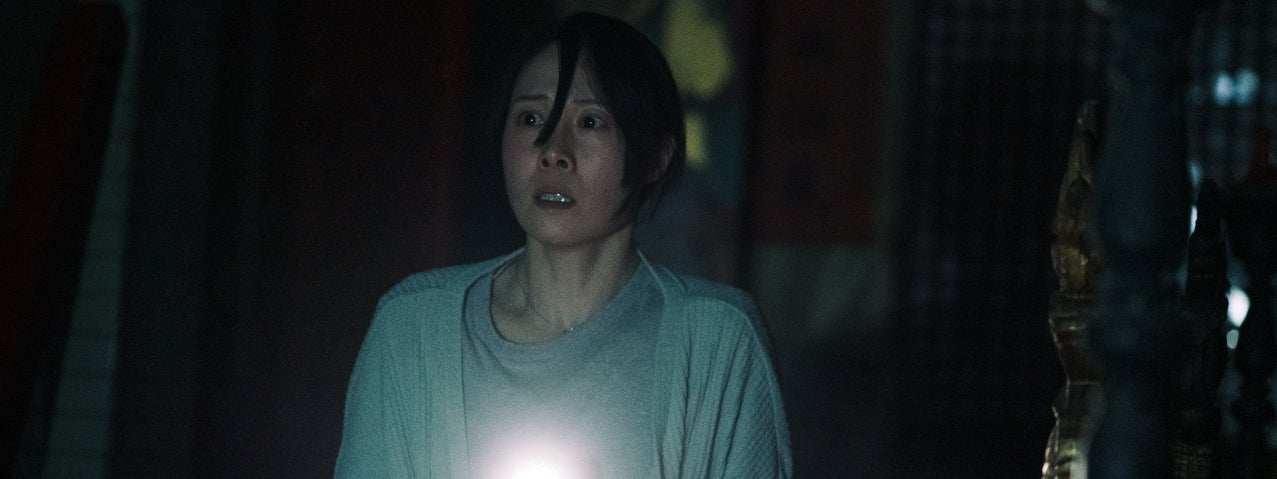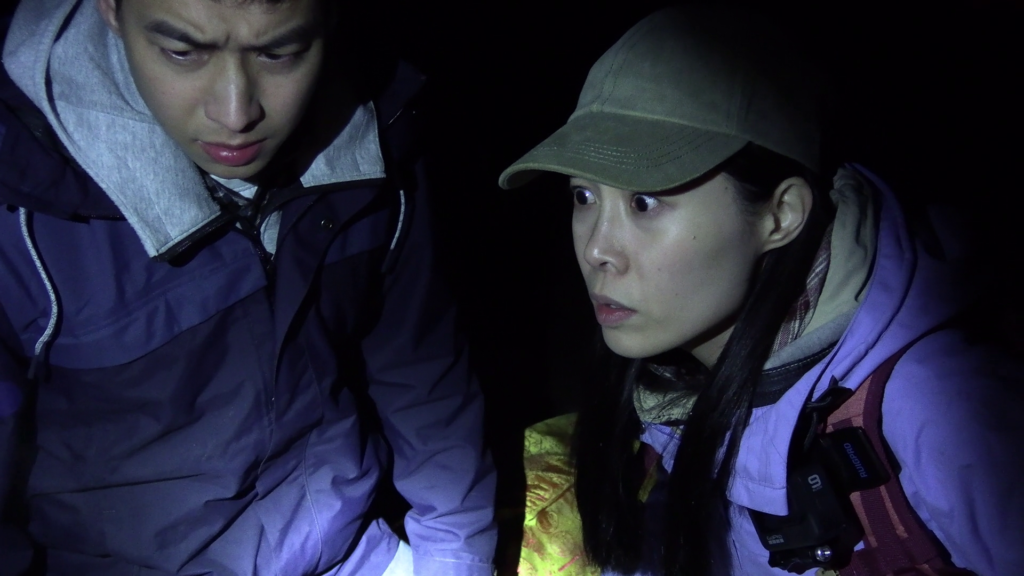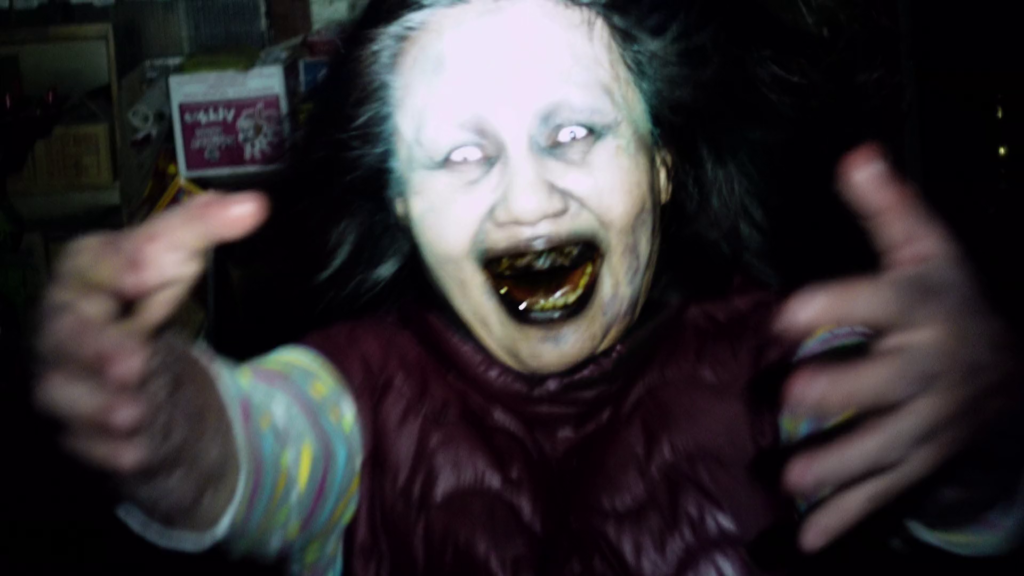
Even though the Asian horror movie craze is not as potent as it was back in the early 2000s, new titles have managed to make their way overseas and have often been met with impressive reception. Netflix, which has become a household staple at this point, even found recent success with Squid Game, a Korean survival drama series that many compared to Battle Royale, proving that Asian media is still as popular as ever. And although neither of those titles is considered horror, they’re certainly horror adjacent at the very least. One of the latest additions to Asian media on Netflix is Incantation, a Taiwanese found-footage horror film directed and co-written by Kevin Ko, who entered the movie scene with a 2009 slasher titled Invitation Only. Having never seen or heard of this earlier film, I had no frame of reference for Incantation other than the tone presented in the trailer.
Incantation is narrated by a woman named Li Ronan. Early into the film, Ronan asks the viewer to memorize an insignia that is displayed onscreen and a chant that she believes will lift a curse from her six-year-old daughter named Dodo. Ronan left Dodo in foster care shortly after her birth, and after seeking psychiatric help and reaching recovery, she brings her back home and is ready to start anew. Unfortunately, the uncanny occurrences that motivated her to seek help in the first place begin to transpire again, and this time they’re specifically drawn to Dodo. As it turns out, Ronan broke a religious taboo six years ago when visiting a remote village with her “Ghost Busters” crew. This crew consisted of her boyfriend Dom and his cousin Yuan. These three were documenting a ritual that was conducted by Dom and Yuan’s family with the intention of sharing it on their YouTube channel.

In order for Ronan, an outsider, to gain full access to the village, Yuan persuades one of the elders that she is practically family since she will soon be marrying Dom. The Ghost Busters are then asked to submit their names to their deity, the Buddha-Mother, along with the name of Ronan’s unborn child. Unbeknownst to her, Ronan was already pregnant with Dodo when entering the village, and she reluctantly proceeds to infiltrate the area. Things take a turn for the worst when they enter an off-limits area and witness the reality of the ritual. Six years later, after Dodo returns home with her mother, Ronan recognizes that the strange phenomenon that has begun to plague them is linked to the events from those years ago, and she is plunged into an expeditious mission to stop the curse before it takes the life of her daughter.
One of the most interesting aspects of the film, which I only found out about after watching it, is that it is inspired by a real incident that occurred back in 2005. A family of six from the Gushan District in Kaohsiung, Taiwan, claimed that they were possessed by demons that were masquerading as Chinese deities and performed various jarring acts (such as burning each other with incense and splashing urine on each other) in an attempt to expel them. Eventually, these acts grew violent enough that they caused the death of the eldest daughter, leaving the remaining five members of the family to be charged for her demise. Interestingly, the deity used in the film, along with the symbols and aforementioned chant, are fictitious according to director Kevin Ko. This creative choice might have been made in order to avoid offending anyone, but I have yet to confirm the real reason.

Despite using a fictional deity, the film still carries an air of realism, perhaps due to the early request for audience participation in memorizing the insignia that reappears throughout its runtime. I believe that most found-footage horror flicks are naturally immersive simply due to their format, but Incantation, being no exception to this assertion, is able to escalate it a bit further by including the viewer as part of Ronan’s journey. Like most of the recently acclaimed horror titles, the effectiveness here relies heavily on the execution as opposed to originality. The theme of taboo rituals gone wrong in rural villages is no doubt familiar to those of us who have kept up with the genre, but Kevin Ko manages to deliver frightfully potent imagery at just the right moment. And while most mainstream found-footage horror efforts tend to focus on the scares, the ones presented here do not overstep their boundary.
I was taken aback at how emotionally invested I got with the characters. The heart of the story is the love between Ronan and Dodo; Ronan’s incredulity towards her competence as a mother is brought on by her deep regret of being the cause of such an affliction for Dodo, but it becomes the driving force behind her impulse to do whatever is necessary to ensure her safety. This dynamic reminded me a bit of the mother and daughter from Hideo Nakata’s Dark Water, and I can plainly say that I find both of these films to be sadder than they are scary. Aside from these two vague similarities, they couldn’t be more different from each other. While the scares in Incantation become far between during the second act, they definitely pack a much bigger punch than those presented in Dark Water, mostly due to how much more gruesome and mystic they come across.

Incantation is an incredibly competent addition to both the Asian horror and found-footage catalogs. I’ve seen other reviewers state that it brings nothing new to the table, but I personally reject that sentiment as I believe that it is not a filmmaker’s obligation to be inherently innovative when they simply wish to entertain. The best way to enjoy this film, or any film for that matter, is to eliminate the expectation of breaking new ground. It perfectly caters to horror fans that enjoy their dose of supernatural entertainment with a family drama told entirely out of sequence. It is currently the highest-grossing Taiwanese horror film, so it has that going for it, and I have no doubts that it will continue to find its audience overseas.
Disclaimer: If you suffer from Trypophobia or have a mild aversion to patterns with lots of holes, I would advise that you proceed with extreme caution or avoid watching the film completely as it features imagery that may trigger you. Said imagery is mostly shown during the second and third acts, so if you decide to give it a go, please be especially cautious during the last hour or so!
More from Netflix:
Ceroboh (aka The Screaming Sky) is a 2022 Malaysian sci-fi thriller, directed by Feisal Azizuddin. Mostly known for directing shorts, Feisal made his move into feature-length directing the drama thriller… Thai horror is often overlooked, but can be just as terrifying as its Japanese and Korean counterparts. Luckily, with releases like the wonderful Girl from Nowhere (featured in our best television… Things Heard and Seen is an unusual, psychological horror film where several tropes are turned on their heads, while the important beats are still captured. Domestic relationships, power dynamics, and… Ghost Lab is a supernatural Thai horror that has an extraordinary, unique story accompanied by a massive twist. However, it has an unnecessarily long run time of almost two hours!… While zombies have traditionally been mostly influenced by Western culture, the zombie sub-genre has been getting a resurgence these past few years thanks to South Korea. Zombies are some of… Life is a Train Wreck In the final days of 2022, most of us were looking toward 2023 with hearts full of hope, and faith that the moment those…Ceroboh (2022) Film Review – The Real Sky Beast is Man
School Stories (2022) Review: New Thai Horror Anthology on Netflix
Things Heard and Seen (2021) Film Review – Unique Phycological Horror
Ghost Lab Review (2021) – A Scientific Ghost Horror from Thailand
The Top 5 Most Memorable Zombies of Pinoy Cinema
White Noise (2022) Film Review – Arthouse Existential Horror Comedy

Your typical ghoul next door; film enthusiast, horror fanatic, J-horror nerd, aspiring horror host, and all around geek. Will likely be found cuddling with their cat and reading an old smelly book, or stuffing their face with popcorn at the cinema!





